In the realm of body art, where ink meets skin, the clock tattoo stands as an enduring symbol of time’s relentless passage. This intricate motif has captivated tattoo enthusiasts for centuries, transcending cultural boundaries and inspiring countless interpretations. From its origins in ancient civilizations to its modern-day significance, the clock tattoo weaves a compelling narrative of human existence.
Historical Roots: From Ancient Timekeepers to Victorian Mementos
The earliest known clock tattoos can be traced back to ancient Egypt, where hieroglyphs depicting sundials and water clocks adorned the bodies of pharaohs and priests. These tattoos served as potent reminders of the cyclical nature of time and the importance of honoring the gods.
During the Victorian era, clock tattoos gained popularity as sentimental mementos. Intricate pocket watches and elaborate grandfather clocks became symbols of mourning, with their hands often frozen at the time of a loved one’s passing. These tattoos served as a poignant tribute to those who had departed, offering solace and a tangible connection to their memory.
Symbolic Interpretations: Time’s Fleeting Nature and the Passage of Life
At its core, the clock tattoo embodies the ephemeral nature of time. Its ticking hands serve as a constant reminder that every moment is precious and fleeting. This symbolism resonates deeply with those who seek to live their lives to the fullest, cherishing each passing day.
The clock tattoo can also represent the cyclical nature of life. Its hands move through a constant cycle of birth, growth, decay, and renewal, mirroring the journey of human existence. This interpretation encourages reflection on the past, appreciation of the present, and anticipation of the future.
Variations and Styles: A Canvas of Artistic Expression
The clock tattoo offers a vast canvas for artistic expression, with countless variations and styles to choose from. Traditional pocket watch designs evoke a sense of nostalgia and elegance, while intricate grandfather clocks symbolize timelessness and wisdom.
Modern interpretations often incorporate surreal elements, such as melting clocks or distorted timepieces. These designs explore the fluidity of time and the subjective nature of its perception.
Placement and Meaning: A Personal Journey
The placement of a clock tattoo can also carry significant meaning. A wrist tattoo may serve as a constant reminder of time’s passage, while a chest tattoo can represent the heart’s connection to the rhythm of life. A tattoo on the back may symbolize the weight of time carried on one’s shoulders.
Cultural Influences: Time Across Different Perspectives
The clock tattoo has been adopted by various cultures around the world, each with its own unique interpretations. In Japanese tattooing, the clock is often depicted as a symbol of impermanence and the beauty of the present moment. In Celtic culture, the clock is associated with the cycle of seasons and the interconnectedness of all things.
List of Clock Tattoo

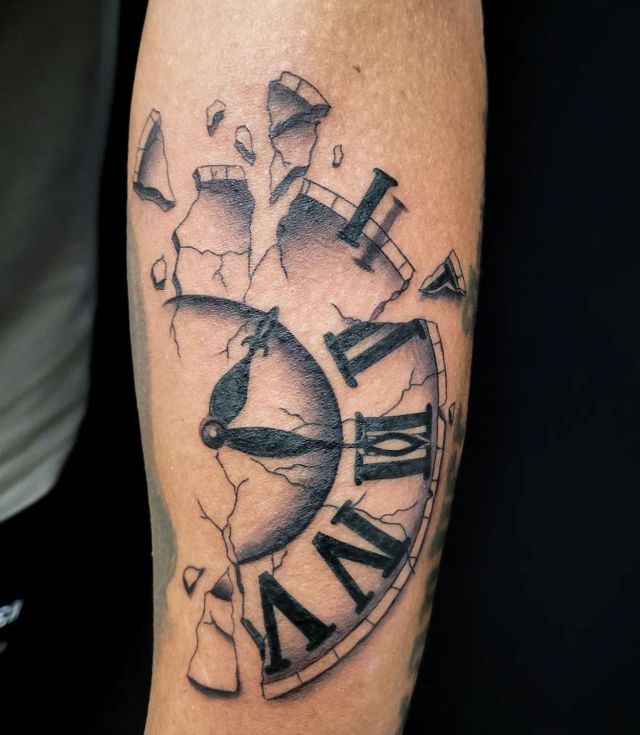
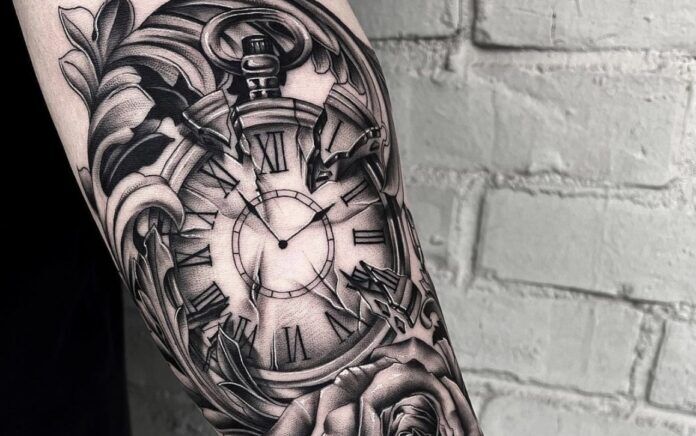
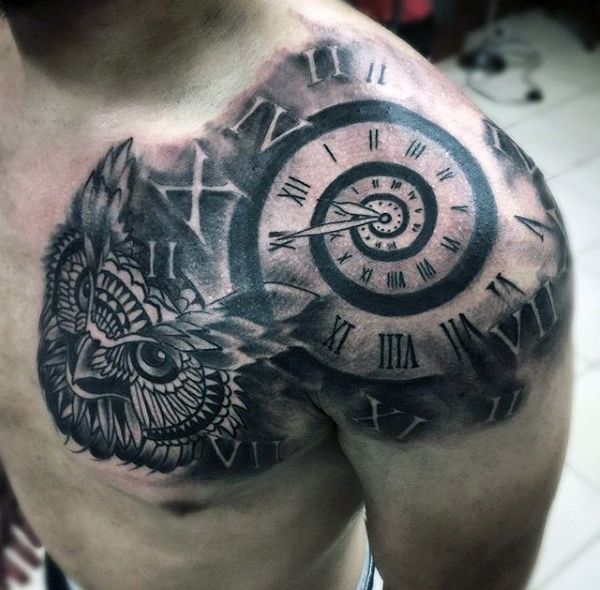

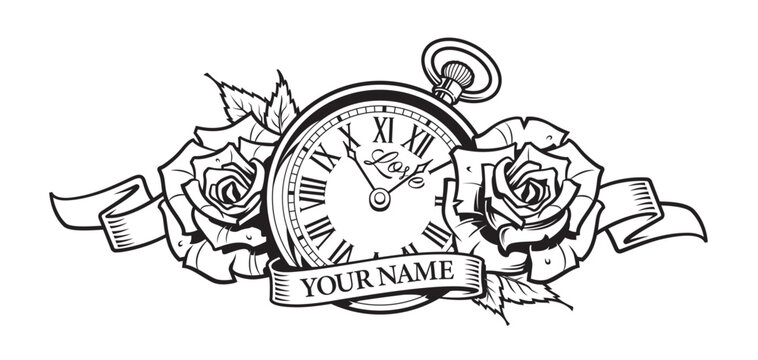
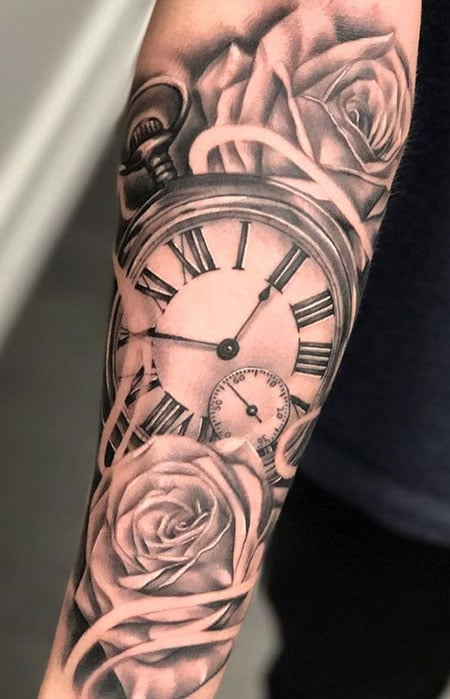

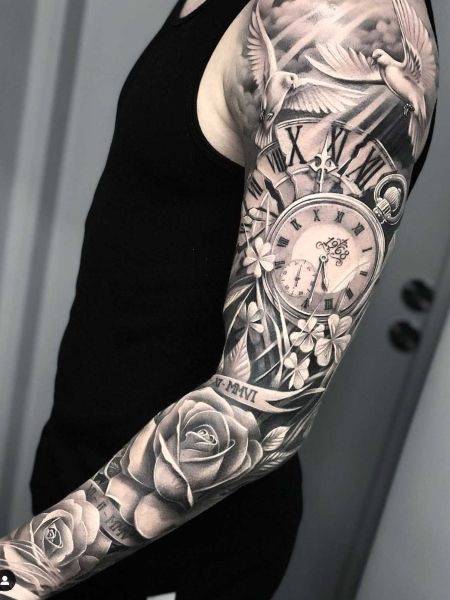

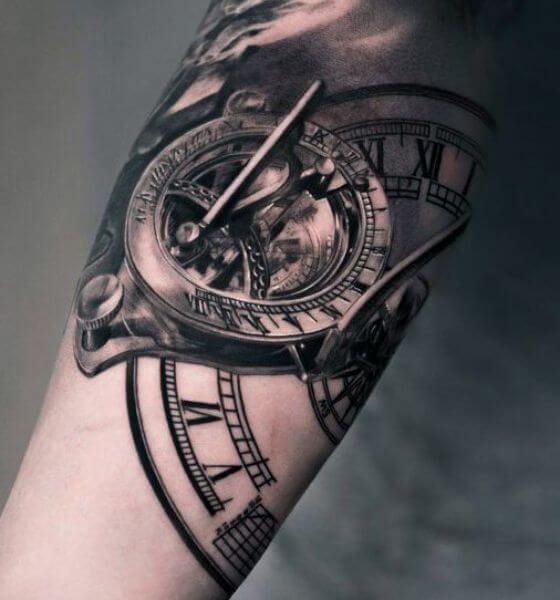

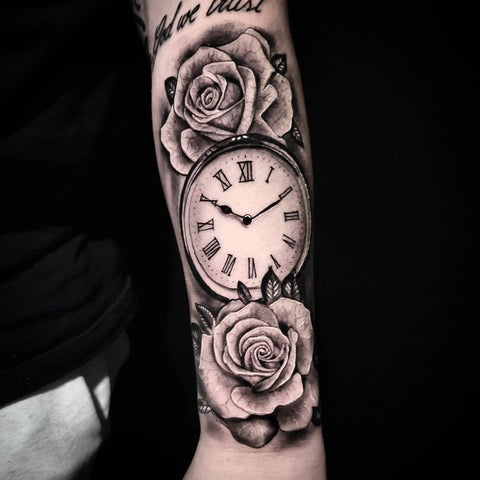
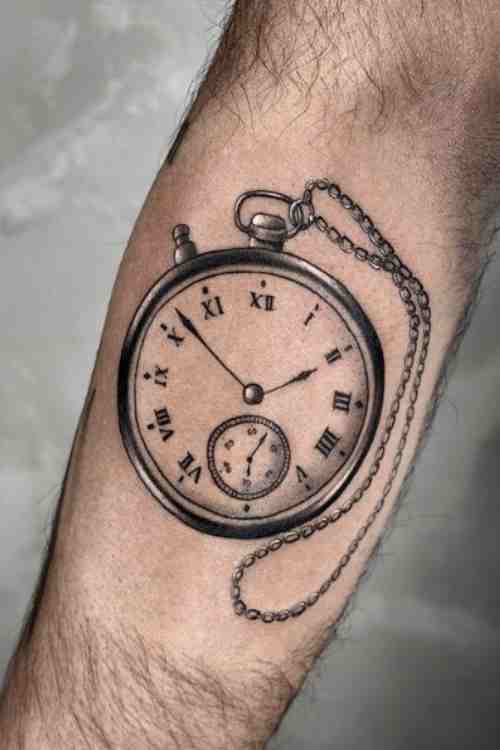


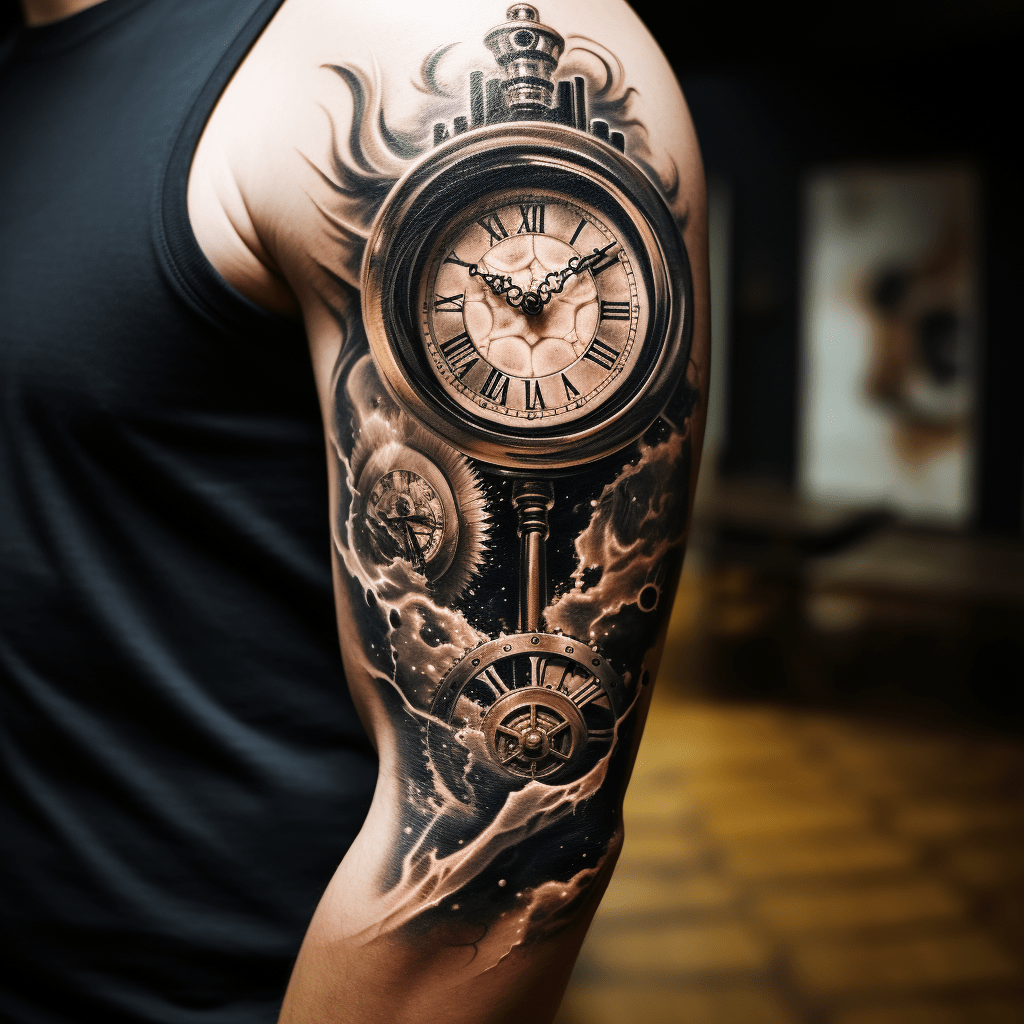
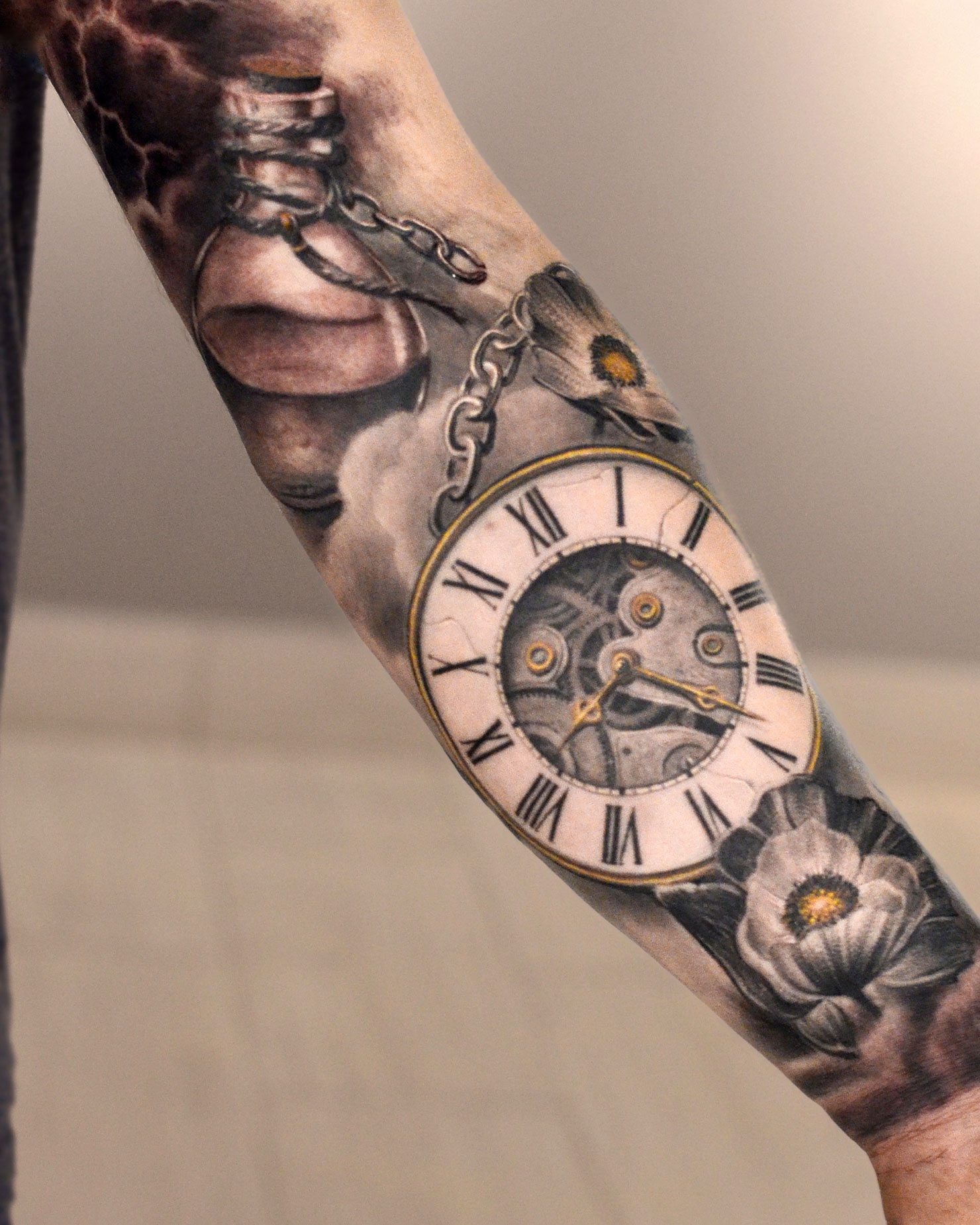
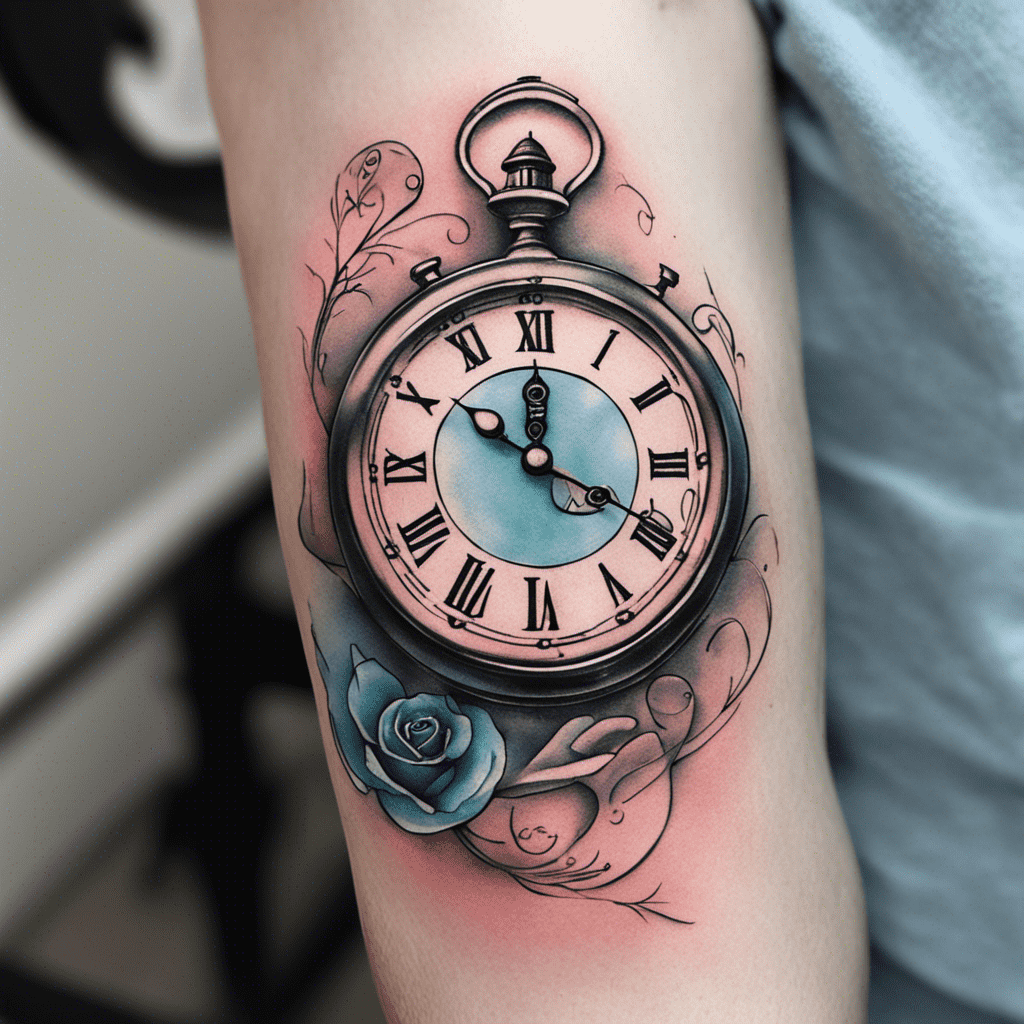


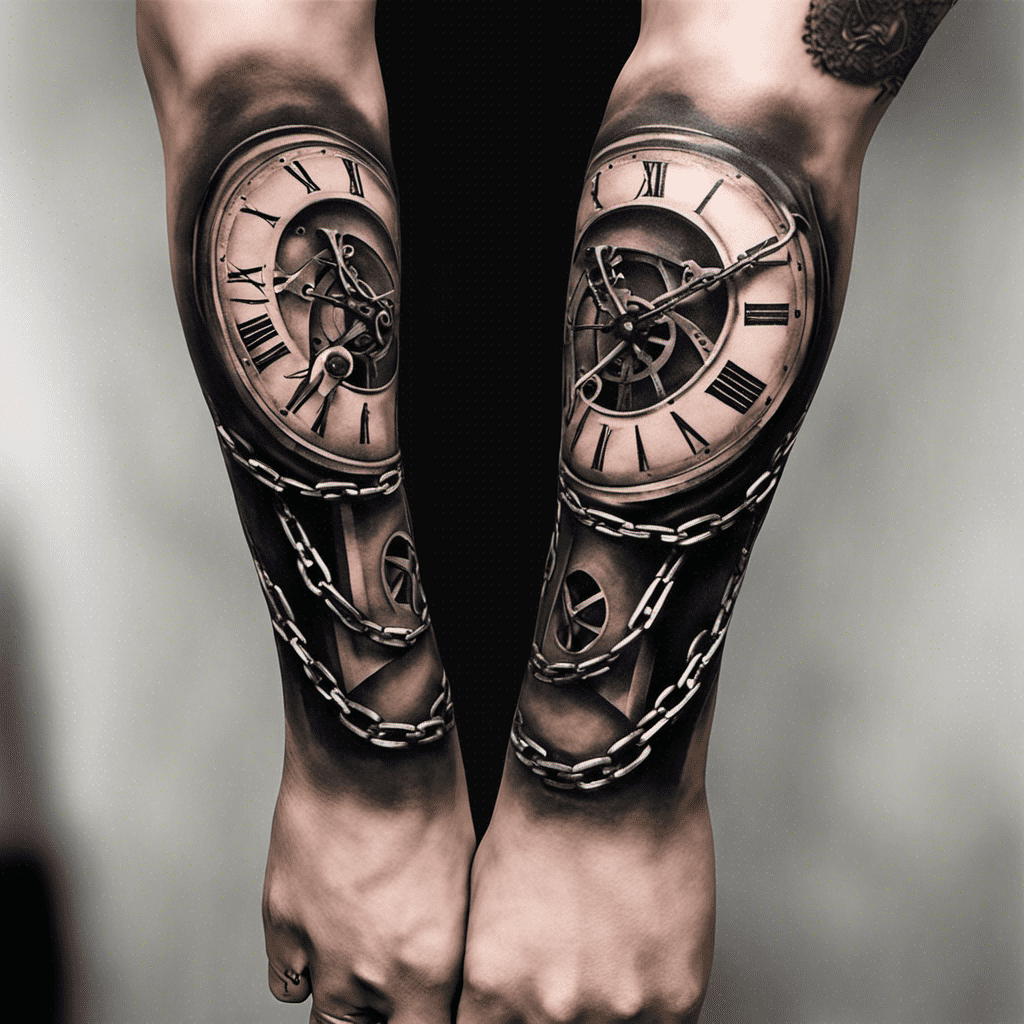


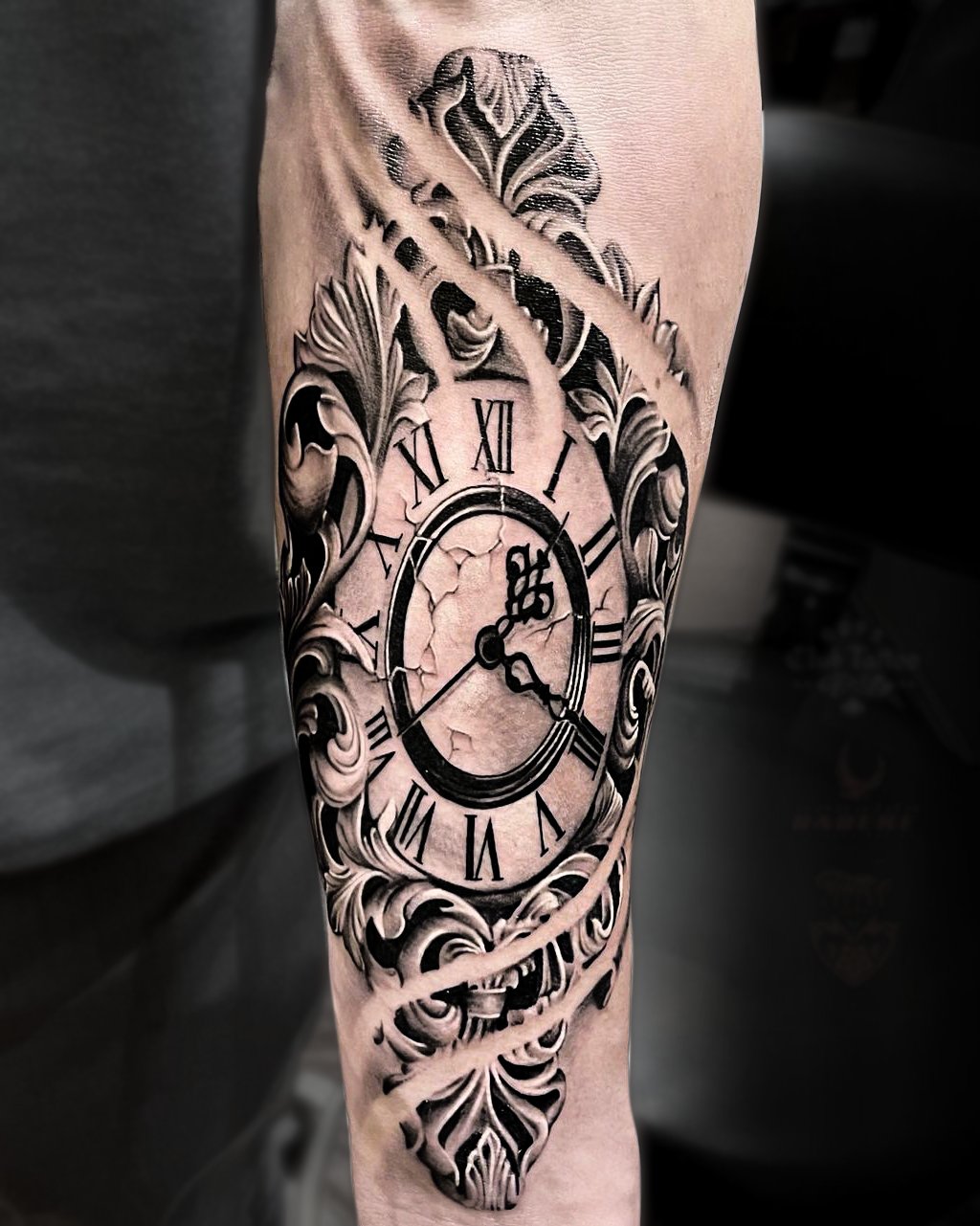

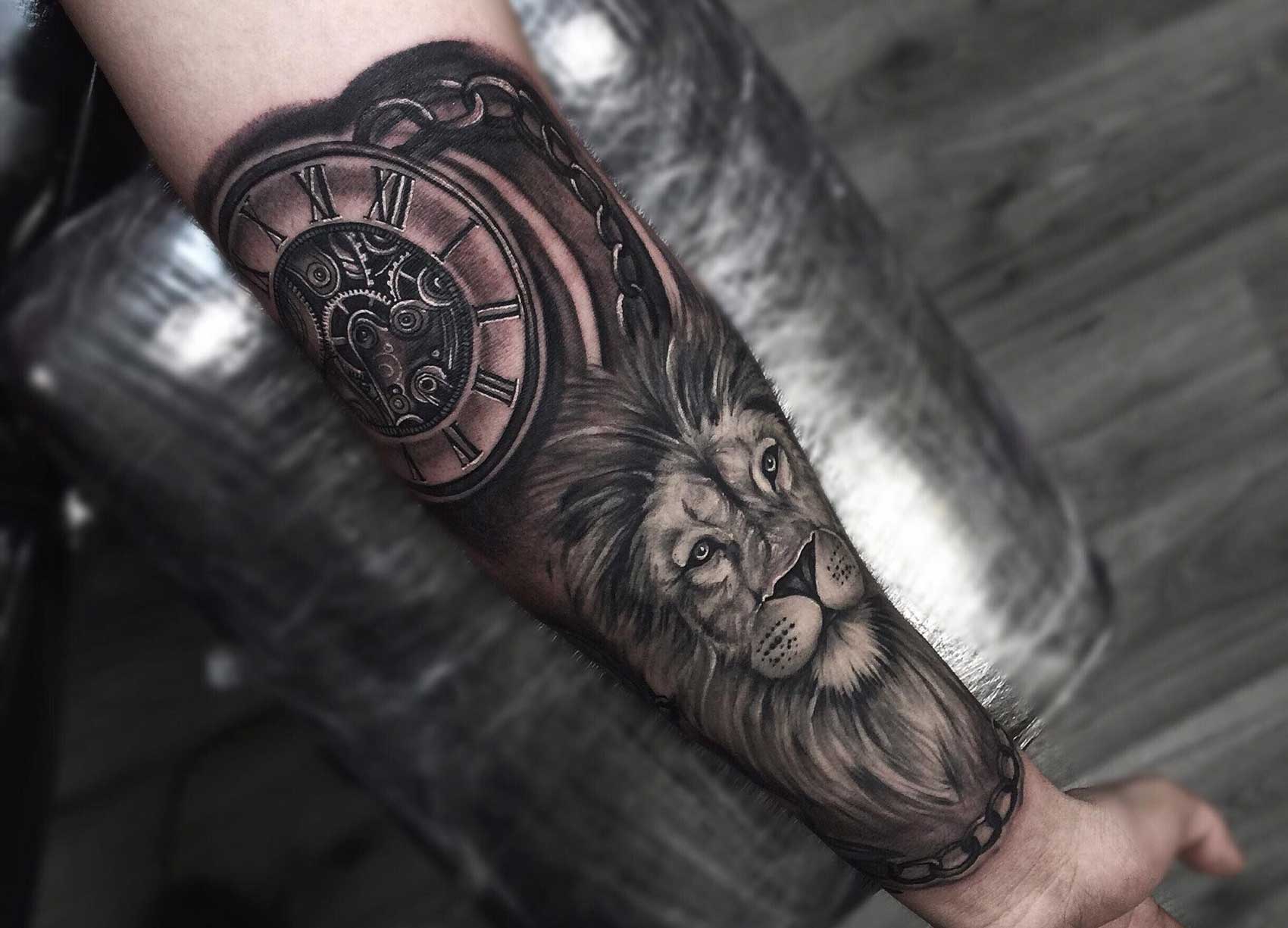

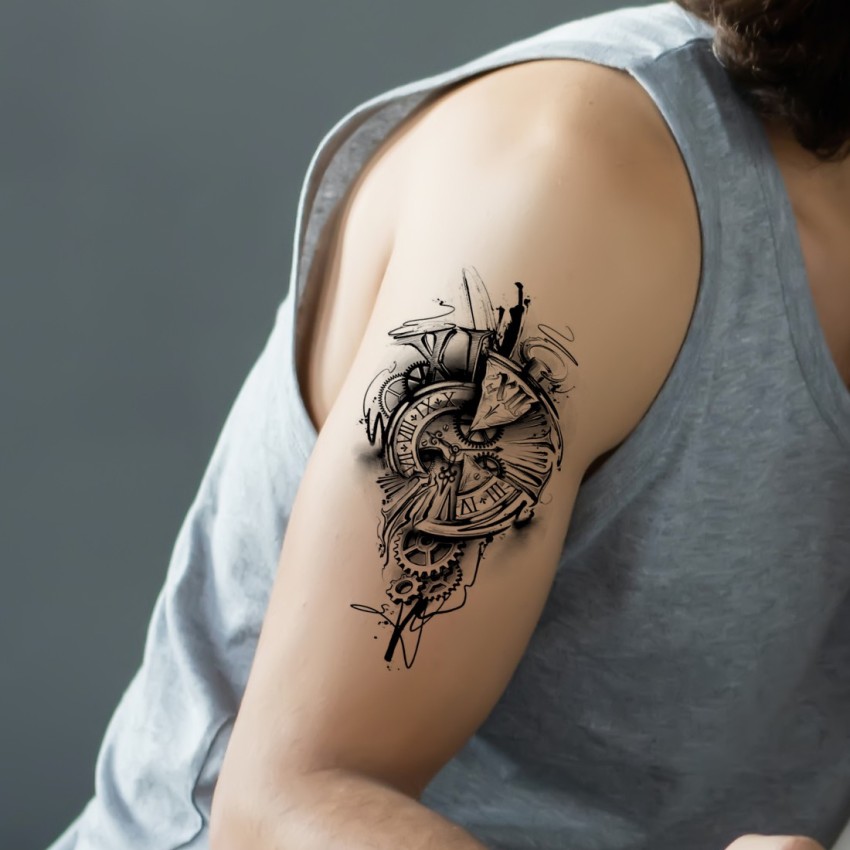



A Timeless Symbol of Human Existence
The clock tattoo is a timeless symbol that transcends cultural boundaries and personal experiences. Its intricate designs and profound symbolism have captivated tattoo enthusiasts for centuries, offering a tangible reminder of time’s relentless passage and the preciousness of life. Whether it serves as a memento of a loved one, a meditation on the nature of time, or simply a statement of personal style, the clock tattoo continues to endure as a powerful and evocative form of body art.
